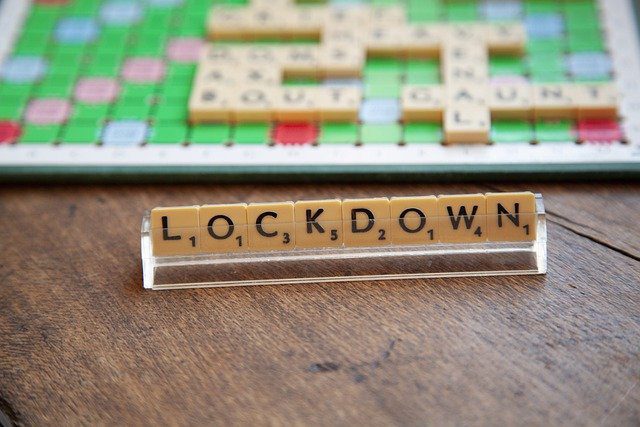The ongoing coronavirus pandemic has invited government and public health officials to issue lockdowns and stay-at-home orders globally. But these lockdown orders are not justified. Consequently, there is no moral obligation to obey them.
After the SARS and H1N1 epidemics, the Public Health Agency of Canada drafted the Canadian Pandemic Influenza Preparedness (CPIP) guide. Although the guide was not implemented, it nevertheless maintains that:
… when considering restrictive measures, it is important to balance respect for autonomy against protection of overall population health. In such situations, the principles of proportionality, reciprocity and flexibility are involved, with a view to safeguarding individual freedom to the extent possible while promoting protection against the health and societal consequences of influenza infection.
I understand this to mean that justification for state-sanctioned paternalism to promote public health is possible. What provides actual justification, however, depends on the equitable balance of benefits over harms such paternalistic measures are able to achieve. There is a philosophical argument to be made that lockdown measures essentially do not — indeed, cannot — achieve this balance.
Legitimacy of law
So, it’s possible for public health measures that limit the scope of rights and liberties to warrant enforcement. But in order for them to actually obtain warrant, measures must: i) be evidentially and demonstrably effective at achieving their aim; ii) have purported benefits that outweigh their foreseeable harms, and iii) be clearly, uniformly, transparently and publicly communicated. These conditions are necessary for limiting — not infringing — relevant rights and civil liberties.
These conditions have not been fulfilled with lockdown measures. So, under what conditions is it permissible to disobey the law? What policies would warrant citizens to no longer recognize the legitimacy of state authority?
There is the fact of law and there is the force of law, but neither of these provide the law with legitimacy. This is the condition of the possibility of claims like “an unjust law is no law at all.”
If the law is just, then failure to obey results in one being rightfully subject to the resulting punishment. If, however, the law is unjust, then failure to obey becomes legitimate and one is wrongfully subject to what could only be considered disproportionate sanctions. In this case, the law is incommensurate with the right and the just; it is law, but not lawful.
When it is not possible for a law to obtain justification, it does not have the ability to be legitimate. And when a law cannot obtain legitimacy, disobedience to that law becomes morally warranted.
Determining justice
The Universal Declaration of Human Rights serves to protect and promote fundamental human interests and make provision for the intrinsic values of humans. This is the moral character of rights: they determine the minimum standard of what is morally permissible, prohibited and prescribed in human acts, legislation included. So, for law to be legitimate, it must be predicated on such rights.
Rights involve either claims or privileges. When rights make claims, there is a corresponding duty made upon others to respect the claim being made. Claim rights protect basic human interests from being harmed, such as the security of the person.
When rights involve privileges, others are unable to make claims against you. If you have a privilege, you no longer have a responsibility to respect a claim because a claim can’t be made against you. Privilege rights promote the expression of permissible human interests, such as freedom of belief.
When a law fails to protect claim rights, promote privilege rights or make provision for the actual exercise of either, it is not a just law.
Lockdowns and compliance
How do lockdown measures fail to be legitimate and, consequently, fail to demand our obedience?
Consider the right of “the security of the person.” This right makes a claim against others to refrain from inflicting any undue harms, be they physical, psychological or economic without express consent of the agent.
The right to security of the person also safeguards what we are at liberty to do up to the limit of inflicting undue harms on others. Security of the person actually safeguards the citizen against the state inflicting undue harms on them, while simultaneously safeguarding individuals against the harmful exercise of their protected liberties.
No state has the mandate to protect its citizens against harms as such — it simply has the duty to make provisions for safeguarding its citizens against those harms that would impair their ability to act autonomously and with respect for the public good.
Lockdown measures have reversed this order by mistaking a claim right for a privilege right: they force individuals to suspend what they are properly at liberty to do in order to protect others from harms they cannot properly be protected from. In the process, lockdown orders demand that people suspend their right to security of the person for the sake of being secured against the very harms this right is meant to safeguard people against.
That there is less evidence for the effectiveness of lockdowns than there is for their ineffectiveness makes matters worse. That the various harms of lockdown measures far exceed their purported benefits, even more so.
It is morally permissible to enact a policy wherein harms quantitatively outweigh benefits only if the benefits are of such comparative quality that failing to promote them would itself constitute a greater harm.
The purported benefits of lockdowns is to safeguard public health. But this is obtained at the expense of the rights and freedoms constituting the public interest, of which public health forms a part.
As I argue elsewhere, no one can be made responsible to secure lesser goods at the expense of greater. Lockdown measures force us to fulfil a responsibility to public health that impairs our responsibility to protect, promote or make provision for other goods of equal or greater value. Lockdowns are, therefore, orders of magnitude less beneficial than the harms they cause.
The state must proportion its response to COVID-19 to the evidence. The state must also only enlist those strategies that demonstrably and judiciously strike a balance between promoting the public good and protecting public health. The state must clearly, uniformly and transparently communicate these strategies to the public.
The public must be viewed as collaborators in the execution of these strategies and not variables to be controlled for their own good. The state must end lockdown orders.
Otherwise, civil disobedience to them appears morally warranted.![]()
James Sikkema, Assistant Professor, Philosophy, McMaster University. This article is republished from The Conversation under a Creative Commons license. Read the original article.










